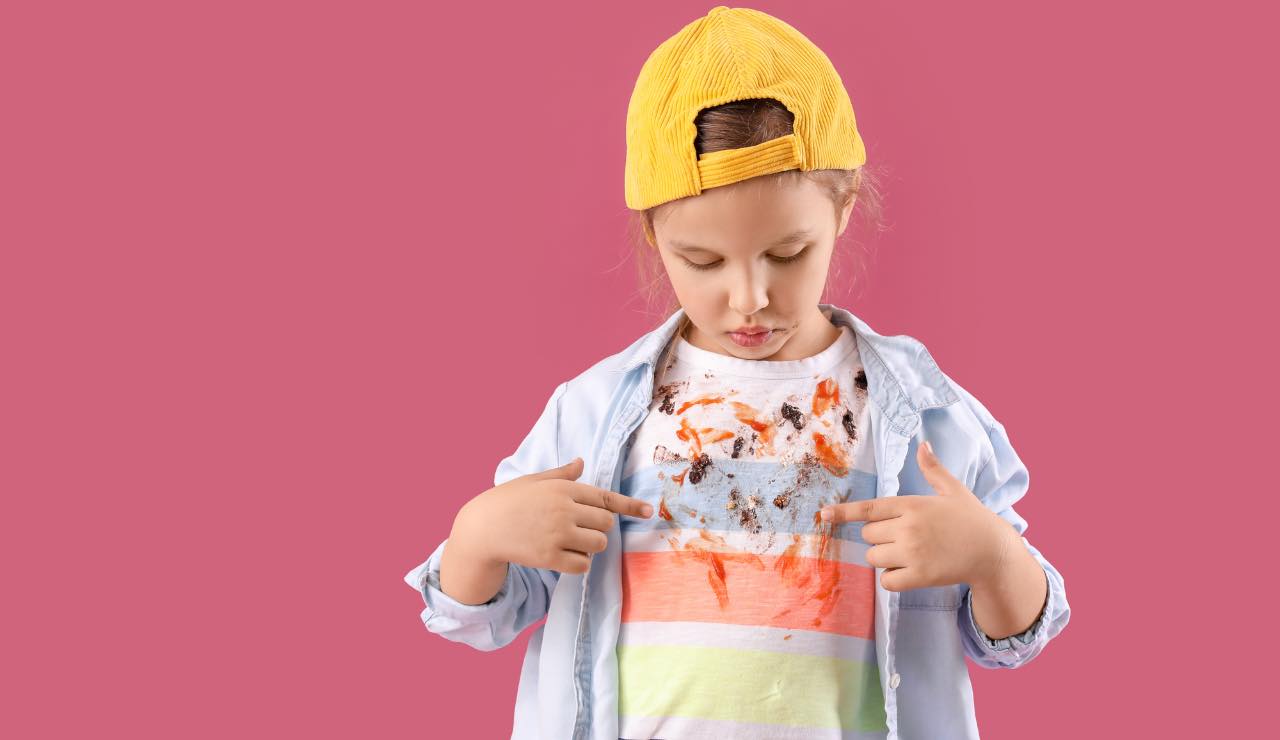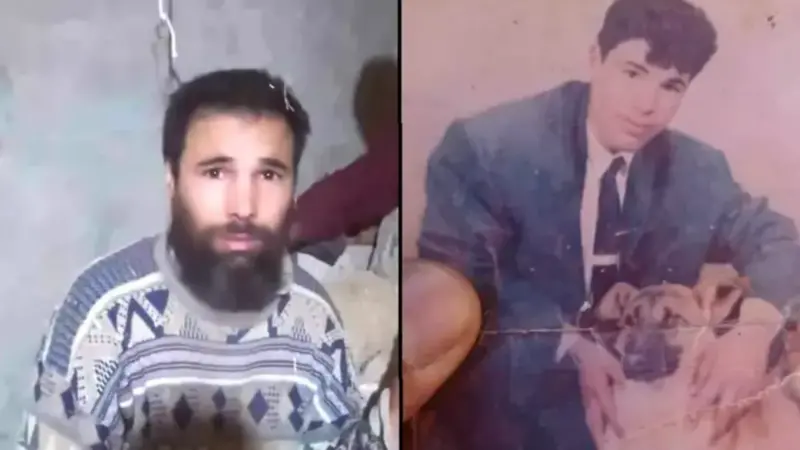#bag #tricks #Joost #Klein #open #week #dancing #gabber #army
When he left for Malmö in Sweden, Joost Klein could hardly disguise his annoyance about it: he was not happy that the Eurovision Song Contest rehearsals would now be somewhat visible. It ruins the surprise effect of his act – exactly what Klein’s performance always relies on. He prefers to keep everything secret. “You’re not going to film a magician during rehearsals, are you?” he asks in front of the camera at Schiphol.
These are rules that the autonomous Frisian artist will have to deal with over the next week and a half. The Eurovision Song Contest is a media circus. A ubiquitous international music festival that is widely publicized both before and during on social media, blogs and fan sites. And then the Eurovision fire will really flare up from Sunday, with the official opening of the 68th Eurovision Song Contest with 37 participating countries.
The first semi-final with fifteen countries is on Tuesday. Then Thursday is the second semi-final – Joost Klein’s. In the most favorable position of the evening, last, he plays for the Netherlands.
In the meantime, you can picture him in his bright blue suit with those exorbitant shoulder pads and white hair. Although there also appears to be a black ‘travel variant’. Last Tuesday he did his first rehearsal in the Malmö Arena. The participants are allowed to explore the large stage for half an hour, enough to go through the song three times. Some artists play around with the decor, trying out their show clothes. The act can still be tinkered with.
Press is not yet welcome. But fragments filtered through the official Eurovision channel on TikTok and Instagram. Klein seemed to keep his cards close to his chest with a somewhat clumsy-austere staging without controversial visuals. Of his two companions, Appie Mussa was dressed as a fluffy blue-yellow bird and the Stunt Gnome stood behind a turntable/monitor with many wires in a starry blouse. And two dancers danced along in white sweatsuits with European Union stars on the back.
Eurovision Song Contest commentator Cornald Maas immediately confirmed on X that a few visual surprises have not yet been released. There is no doubt that Klein will conspicuously pass on his contagious, energetic dance virus. A dancing gabber army on the screens, who knows?
Joost Klein rehearses at the Malmö Arena, Sweden
Photo Corinne Cumming
Everything but predictable
Klein’s ‘Europapa’ is still the most streamed song of the festival. The song has been listened to more than 42 million times on Spotify. After the first rehearsal images, he has fallen from third to fourth place among bookmakers, after Switzerland, Croatia and Italy.
A three-minute act “that will please everyone with the energy of their friendship,” said creative director Gover Meit (become known as comedian Stefano Keijzer), last week at Sophie Hilbrand’s talk show table. Requests, including from this newspaper, for a long interview with Joost Klein have been rejected for months.
The pleasantly crazy embrace of nostalgia is typical of Joost Klein
According to him, Klein trained day in and day out for his performance with his friends. Meit had also never worked so intensively on a single project before. As “father to his creative children” he recognizes in them maladaptive behavior and originality, “how they came into the world with their own creativity.” He calls Joost Klein a genius at that.
The Netherlands’ entry for Eurovision this year is anything but predictable. The success of ‘Europapa’, a cheerful Eurodance song that gradually turns into happy hardcore (a dance style that became popular in the Netherlands in the 1990s) with faster rhythms, is multi-part.
Retro Love & TikTok Brain
“It is then, with the spirit of the times. Into the 90’s with a TikTok brain,” Joost Klein described the song at the presentation in March. “Everything comes back. Everything moves in circles. I am a good trend watcher in that.”
His pleasantly deranged embrace of nostalgia is typical of Klein in his absurdist music shows in which samples and word streams crash over each other. His music sometimes grates, but it also has something artistic. Klein wants his ‘Europapa’ to not only be a fun party act, but also to have personal depth.
The music video, directed by Véras Fawaz, has many references to popular culture of the time, from the popular music channels MTV and TMF, to the old-school super8 camera, camcorder to Game Boy.
Klein races over the dike on a mobility scooter. Gabbers dance in front of the De Breek mill in Etersheim, a village in the municipality of Edam-Volendam.
The 26-year-old artist from Leeuwarden, a former gymnast who started as a vlogger and then became a rapper with corny raps on a colorful rhythm arsenal, loves everything that has youth sentiment attached to it. “You can wake me up to show me something from the past,” he said in March.
Photo Photo Corinne Cumming
Eurodance & Happy hardcore
Dutch Eurodance acts traveled all over the world thirty years ago: tidy beats, raps with a cheesy chorus by a rapper and a singer. Think of groups like 2 Unlimited, 2 Brothers on the 4th Floor, Twenty 4 Seven or T-Spoon: mega popular. And still at retro parties.
‘Europapa’ fully fits into the currently prevailing nineties revival trend from music, clothing to series and gadgets. Forty plus relives his youth. And young people are becoming inspired again, entirely in accordance with the cyclical trend waves. In this case by happy hardcore. Producer Tantu Beats and Klein emptied the entire nineties candy store of sounds and influences for ‘Europapa’. Take the sound of a cheap-sounding toy piano.
DJ Paul Elstak, who together with acts such as Party Animals and Charly Lownoise & Mental Theo made happy hardcore big in the Netherlands, has an explanation for this. “Because it makes you happy and cheerful. You can go wild and dance to it. In times when everything is not so nice in the world, people are happy when they hear something nice.”
Trump: 24 seconds gabber
The intro of ‘Europapa’ („Europe, let’s come together! Euro-pa-pa, Euro-pa-pa. It’s now or neeeever!”) is exactly the way the German rave artist Scooter introduced his hits. But Klein’s big asset on the Eurovision stage is the contribution of gabber. For the so-called ‘drop’, when the compressed musical tension explodes towards the end, DJ Paul Elstak was specially asked to provide a ‘sauce’. For 24 seconds (from 2.14 to 2.38), old gabber times are revived under his hands, with ‘chopping’ gabbers in the video.
The gabber bit towards the end is the so-called ‘drop’. “That should be explosive right away,” says Elstak. “I added that old gabber sound from my songs like ‘Rainbow in the Sky’, of course you go back in time a bit. The hard kick, that old-fashioned sawing sound from the synths, the hi-hats, that breakbeat; everything is coming together again.”
It makes forty plus nostalgic. You don’t even have to have liked gabber music at the time. For average people this is a raw, intense piece, Elstak knows. “But I keep seeing all those videos, just that one piece that they all – children and their parents – insist on chopping up in the living rooms. Very nice that it is going so viral. And good for the music that happy hardcore with its old sounds still triggers.”
He expects high marks from countries that embrace hardcore, Germany, Switzerland, Austria. Spain, Italy. “These are all countries where I regularly perform. In France you also have a hardcore scene. And a little in Scotland.”
High expectations at the Eurovision Song Contest or not, it is now raining requests from Elstak to make these types of remixes. Another collaboration between Klein and Elstak plus a big German name will be released towards the summer – a huge hit.
Europapa comes in its own language
The language barrier has been fought for a long time, but the fact that a country still sings in its own native language at the Eurovision Song Contest is a rare phenomenon in the current field of participants. Often: the combination. English with a few sentences in your own language for a touch of authenticity.
It was clear from the start that Klein would sing in his own language. “I did it the way I wanted to,” he said. “We have done a lot of research into Eurovision songs. And we came to the conclusion: we prefer a native language entry.”
Regarding the last twenty years, S10 sang ‘De Diepte’ in 2022 (she came 11th). Before that in 2010: Sieneke (‘I am in love, sha-la-li’, did not reach the final). In the editions from 1974, ’75 and ’76 to 1999 (Marlayne – ‘One Good Reason’), Dutch candidates sang exclusively in their own language.
From heels to emo: the personal element
After the hardcore part the tears come. Then Klein gets personal. It is not without reason that the song is called ‘Europapa’ – it is an emphatic ode to his father. The loss of both his parents marked his teenage years. In songs he expresses this sadness, and also the therapy it took him to go through life as a somewhat stable person. Friesland (2022) became his therapy record.
Crows flying overhead, a burned family photo of toddler Joost with his parents. His family home goes up in smoke. Subdued closing words are set to piano music: “My father once told me, it is a world without borders. I miss you every day is what I secretly whisper. See dad, I listened to you.” It seems that the fragile performance of the 2017 Eurovision Song Contest-winning Portuguese ballad ‘Amar pelos dois’ by Salvador Sobral inspired the upcoming performance.
Photo Sarah Louise Bennett
Finally: Europe united
Klein visits many countries in his song. He emphatically wants to convey the European feeling. It is no coincidence that these are also the ‘Big Five’ (Germany, France, Great Britain, Italy, Spain), the countries that contribute the most to the EBU and have a guaranteed final place. Many European flags can be seen. With a little imagination, his suit with the eccentrically pointed shoulder pads is also shaped like a star.
The somewhat precariously stacked building with windmill in the video clip is a collection of places where Klein grew up. You could also see Breugel’s Tower of Babel in it: a united ‘Europe’.
Share Email the editor












